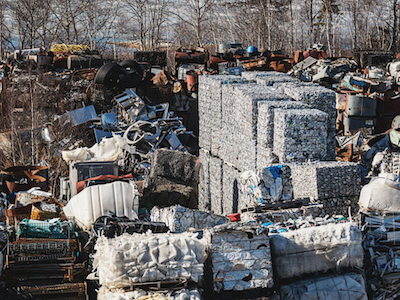Market

April 30, 2024
Hoffman: Export and Asia markets impact US domestic scrap markets
Written by Philip Hoffman
The usual suspects are pointing to a sideways U.S. market. Only two mills issued cancellations in April while others pushed for dealers to ship their April orders which bodes well for suppliers.
On the export side, Turkey seem to be stuck on $380 CFR for HMS but exporters are stuck on $390, so there is a stalemate that may get broken at the International Rebar Exporters and Producers Association (IREPAS) meeting of long products mills and bulk scrap shippers in Berlin this week.
The wild cards in those price negotiations are Bangladesh and India. Most publications do not adequately cover the fact that while Turkey imports the most volume, it’s actually Bangladesh that drives export market prices, and is the market of choice for many major bulk exporters; and as well we see that India is increasingly becoming more of a factor in the bulk import arena.
Bangladesh pays a premium of $15-$20 over Turkey. Last month they bought numerous cargos at $400 while Turkey was in the $380’s. The country is finally overcoming some of the financial issues of opening letters of credit (LC) on time with the assistance of the Japanese trading houses, and one major mill will shortly have an additional dock to discharge scrap, alleviating some of the wait time at the port. All of the major west coast bulk exporters I visited last week sold their cargos loading in the next month or two to Bangladesh.
Then at the Recycled Materials Association (ReMA) convention in Las Vegas in April, India stepped up as demand in India is strong. One major exporter sold a 30,000 cargo of shredded to India at $420 indicating an HMS price of $400 or better.
These two markets increasingly have the impact of putting a floor on the price that the Turkish scrap bulk cargo purchase. If exporters don’t get their number, they will look to Bangladesh and India. Exporters may have wait for their LC to open or pay a premium for freight, but the wait in payment time and freight differential still result in higher FOB prices for exporters who are willing to be inconvenienced.
Now back to the U.S.
One Houston exporter pointed out the weakness in the HMS price in the U.S. compared to the price he can get for export HMS to Turkey.
“I can get $335/gt for HMS shipping point FOB rail or truck to local mills but I can get $350-$355/mt if I load a vessel and send it to Turkey at $385 CFR, and on top of that U.S. mills are pickier on the quality. If I don’t get an increase on my HMS from the domestic market this month, I will stockpile it and sell it all to Turkey or Bangladesh.”
Another Gulf Coast regional supplier who sells both domestically and export stated, “India and (now Pakistan who has been absent for almost six months) are both back in the market. Demand is strong in both markets now and looks strong throughout the summer, so I think the shred price in this region domestically will have to go up if mills want prime scrap.”
The above being said, the Far East markets are weaker due to the strengthening USD v the Yen. For the last few days the Japanese Yen has hovered at Y158/USD which is an exchange rate we have not seen since January 1990. As such throughout Southeast Asia, USWC exporters are seeing a price decline of $10-$15 per ton CFR Taiwan, Vietnam, Indonesia, and Malaysian markets. Sales are at $355 CFR Taiwan and dropping from $360-$365 range last month. The result is that the midsized USWC yards are moving as much of their prime scrap as far inland as Arkansas and Mississippi and have to sell their HMS grades at lower prices.
May is a mixed bag:
The U.S. Gulf region has a positive outlook – sideways on some grades but perhaps up on others due to the strength of offshore demand and pricing and the need for prime scrap by domestic mills the Gulf coast region.
The USWC container exporters are seeing a decline in prices to the usual Asian buyers in Taiwan, Vietnam, Malaysia and Indonesia while USWC, USEC and USGC bulk exporters have the ability to get to Bangladesh and India where demand remains strong and the weak yen has a muted effect.
Editor’s note: The views, thoughts, and opinions expressed in the content above belong solely to the author and do not necessarily reflect the opinions and beliefs of Recycled Metals Update or its parent company, CRU Group.





